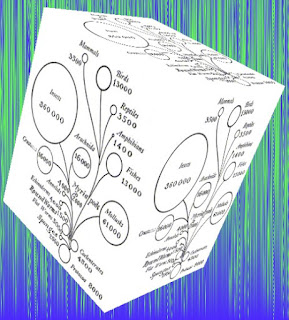Examining the Scopes Trial Textbook
Way back in 1925, John Scopes of Dayton, Tennessee, was arrested and put on trial for allegedly teaching evolution. The whole thing was a set-up by the falsely-named American Civil Liberties Union to put creation on trial. Dr. Robert Carter investigated what was actually in the textbook, A Civic Biology, Presented in Problems by George W. Hunter.
As mentioned, the case happened in 1925, but A Civic Biology was written in 1914. It was not only outdated, but loaded with evolutionary and secularist views. Some of the evolutionary material was deceitful (equivocating change with evolution, plus a passel of outright false statements). Scientific racism and eugenics are also included in the textbook.
There are a couple of things for which I would have liked to have seen references or further explanation. One is that the word Caucasian is outdated and no longer in use. Actually, it still has limited use for some classifications, but the correct word is simply white. I didn't know that, especially since I still am presented with check boxes on forms that include Caucasian as an option. (One fellow quipped that he is white but has no ancestry from the Caucasus Mountains.) The other part I would have liked documentation is about why the harmful “Jukes” and the “Kallikaks” stories.
This article is useful on a number of levels, including perspectives of science over a hundred years ago. We can trace the harmful effects of evolutionary thinking on societies, and must realize the truth of special creation and that man is created in God's image.
 |
| Modified from an illustration in the textbook (public domain) |
 |
| Public domain photo via Wikimedia Commons |
This article is useful on a number of levels, including perspectives of science over a hundred years ago. We can trace the harmful effects of evolutionary thinking on societies, and must realize the truth of special creation and that man is created in God's image.
Hunter’s A Civic Biology was the textbook at the centre of the famous Scopes Monkey trial in 1925. The author, George William Hunter, was a college professor, prominent member of the ACLU, and a former high school teacher in New York City. The book was published in 1914 and had been adopted as the high school biology textbook by the state of Tennessee in 1919. By the time of the trial, it was more than a little outdated. The neighbouring state of Kentucky had adopted Hunter’s New Essentials in Biology in 1923. But Tennessee held back, letting its citizens re-use the older book and not have to buy new ones. The book included material on human evolution, which was not supposed to be taught in Tennessee schools due to the recently passed Butler Act. Even though teacher, John Scopes, had not taught anything about evolution, his use of the textbook became the catalyst for this landmark trial. Thus, the struggling little town of Dayton, which had shrunk from 4,000 to 1,500 people over recent years, became the epicenter of world events.To read the rest, visit "A long-overdue review of Hunter’s A Civic Biology".